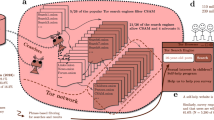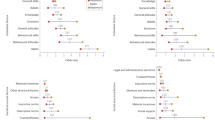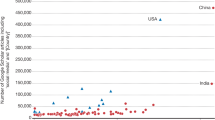Abstract
Aim To evaluate web search engines' informational content regarding community water fluoridation (CWF) when accessed from the UK.
Methods The search engine result pages (SERPs) regarding CWF from Google were identified, the content was analysed for themes and sentiments, and Google Trends information on CWF was examined.
Results The SERPs were predominantly in favour of CWF. Anti-fluoridation themes were observed in SERPs that presented the arguments supporting and opposing CWF with equanimity, irrespective of the quality of scientific evidence. Hence, a web search for CWF yields conflicting information. Correlation is observed between current affairs and public interest in CWF.
Conclusion UK residents seeking online CWF advice may experience confusion due to the prevalent conflicting information, which may influence their decision-making. Dental health professionals, public health practitioners and policymakers should strive to improve the information provision on CWF online.
Key points
-
Web searching provides conflicting information on community water fluoridation.
-
No association was found between publisher type and language sentiment of search results.
-
Google Trend peaks correspond with news/events regarding water fluoridation in media.
This is a preview of subscription content, access via your institution
Access options
Subscribe to this journal
Receive 24 print issues and online access
$259.00 per year
only $10.79 per issue
Buy this article
- Purchase on Springer Link
- Instant access to full article PDF
Prices may be subject to local taxes which are calculated during checkout



Similar content being viewed by others
References
British Fluoridation Society. The extent of water fluoridation. One in a Million: the facts about water fluoridation. 2012. Available at https://bfsweb.org/one-in-a-million/ (accessed January 2022).
Mcdonagh M S, Whiting P F, Wilson P M et al. Systematic review of water fluoridation. BMJ 2000; 321: 855-859.
Simmel A, Ast D B. Some correlates of opinion on fluoridation. Am J Public Health Nations Health 1962; 52: 1269-1273.
O'Keeffe J, Willinsky J, Maggio L. Public access and use of health research: an exploratory study of the National Institutes of Health (NIH) Public Access Policy using interviews and surveys of health personnel. J Med Internet Res 2011; DOI: 10.2196/jmir.1827.
Al-Ubaydli M. Using Search Engines to Find Online Medical Information. PLoS Med 2005; DOI: 10.1371/journal.pmed.0020228.
Clarke P. The Internet as a medium for qualitative research. SA J Info Manag 2000, DOI: 10.4102/sajim.v2i2/3.95.
Seymour B, Getman R, Saraf A, Zhang L H, Kalenderian E. When advocacy obscures accuracy online: digital pandemics of public health misinformation through an antifluoride case study. Am J Public Health 2015; 105: 517-523.
Kim C, Yamamoto L G. Water fluoridation information found on the World Wide Web. Hawaii Med J 2004; 63: 185-186.
Frangos Z, Steffens M, Leask J. Water fluoridation and the quality of information available online. Int Dent J 2018; 68: 253-261.
Basch C H, Ethan D, Cadorett V, Kollia B, Clark A. An assessment of the readability of online material related to fluoride. J Prev Interv Community 2019; 47: 5-13.
Helmi M, Spinella M K, Seymour B. Community water fluoridation online: an analysis of the digital media ecosystem. J Public Health Dent 2018; 78: 296-305.
Alwafi A, Allukian M. Anti-Fluoridation Activities on the Internet and Social Media: A Professional Challenge. J Mass Dent Soc 2017; 66: 32-37.
Reuters Institute. Reuters Institute Digital News Report 2020. 2020. Available at https://reutersinstitute.politics.ox.ac.uk/sites/default/files/2020-06/DNR_2020_FINAL.pdf (accessed January 2022).
Mertz A, Allukian M. Community water fluoridation on the Internet and social media. J Mass Dent Soc 2014; 63: 32-36.
Young N, Newton J, Morris J et al. Community water fluoridation and health outcomes in England: a cross-sectional study. Community Dent Oral Epidemiol 2015; 43: 550-559.
Hurley R J, Riles J M, Sangalang A. Online cancer news: trends regarding article types, specific cancers, and the cancer continuum. Health Commun 2014; 29: 41-50.
Rains S A, Karmikel C D. Health information-seeking and perceptions of website credibility: Examining Web-use orientation, message characteristics, and structural features of websites. Comput Human Behav 2009; 25: 544-553.
Flaherty M G. Exploratory Study of Health Information Seeking. J Consum Health Internet 2016; 20: 180-185.
Medical Library Association. For Health Consumers and Patients: Find Good Health Information. 2019. Available at https://www.mlanet.org/p/cm/ld/fid=398 (accessed July 2019).
R Project. What is R? 2022. Available at https://www.r-project.org/about.html (accessed September 2019).
Google News Initiative. Google Trends: Understanding the data. 2019. Available at https://storage.googleapis.com/gweb-news-initiative-training.appspot.com/upload/GO802_NewsInitiativeLessons_Fundamentals-L04-GoogleTrends_1saYVCP.pdf (accessed July 2019).
Yoon H, Sohn M, Choi M, Jung M. Conflicting Online Health Information and Rational Decision Making. Health Care Manag (Frederick) 2017; 36: 184-191.
LaValley S A, Kiviniemi M T, Gage-Bouchard E A. Where people look for online health information. Health Info Libr J 2017; 34: 146-155.
Wang L, Wang J, Wang M, Li Y, Liang Y, Xu D. Using Internet Search Engines to Obtain Medical Information: A Comparative Study. J Med Internet Res 2012; DOI: 10.2196/jmir.1943.
Armfield J M. When public action undermines public health: a critical examination of antifluoridationist literature. Aust New Zealand Health Policy 2007; 4: 25.
Flaxman S, Goel S, Rao J M. Filter bubbles, echo chambers, and online news consumption. Pub Opinion Quart 2016; 80: 298-320.
Royal Society for Public Health. Moving The Needle. 2019. Available at https://www.rsph.org.uk/static/uploaded/3b82db00-a7ef-494c-85451e78ce18a779.pdf (accessed January 2021).
Lancashire County Council. Water fluoridation task group. 2004. Available at https://clicknews.lancashire.gov.uk/index.asp?news=201&issues=869&articles=4753 (accessed September 2018).
BBC. Wealth gap in child dental health. 2004. Available at http://news.bbc.co.uk/1/hi/england/3931525.stm (accessed September 2018).
Fluoride Alert. Executive pulls plug on fluoride in water. 2004 https://fluoridealert.org/news/executive-pulls-plug-on-fluoride-in-water/ (accessed January 2022).
UK Government. The Water Supply (Fluoridation Indemnities) (England) Regulations 2005. 2005. Available at https://www.legislation.gov.uk/uksi/2005/920/contents/made (accessed September 2018).
Wales Online. Wales to steer clear of fluoride in water. 2005. Available at https://www.walesonline.co.uk/news/wales-news/wales-steer-clear-fluoride-water-2398252 (accessed September 2018).
BBC. Ministers launch fluoride drive. 2008. Available at http://news.bbc.co.uk/2/hi/health/7227859.stm (accessed September 2018).
BBC. Southampton water fluoridation was not unlawful. 2011. Available at https://www.bbc.com/news/uk-england-hampshire-12427955 (accessed September 2018).
BBC. Consider mass fluoridation of water, says health body. 2014. Available at https://www.bbc.com/news/health-26729484 (accessed September 2018).
Acknowledgements
Teesside University, Middlesbrough, UK supported this research study. We would like to thank Mr Pratik Wasnikar for helping with the design of Figure 3 and Mr Shubhankar Chanda for helping us make the figures in this document print-worthy.
Author information
Authors and Affiliations
Contributions
Priyanka V. Vasantavada, Fatemeh V. Zohoori and Roy Sanderson conceived and designed the study; Fatemeh V. Zohoori supervised the project with help from Roy Sanderson and Louisa Ells; Priyanka V. Vasantavada analysed the data and Fatemeh V. Zohoori and Roy Sanderson contributed to the interpretation of the findings; Priyanka V. Vasantavada and Fatemeh V. Zohoori took the lead in writing the manuscript. All authors read, provided critical feedback and approved the submitted paper.
Corresponding author
Ethics declarations
The authors have no conflicts of interest to disclose.
Rights and permissions
About this article
Cite this article
Vasantavada, ., Sanderson, R., Ells, L. et al. Web search engines reveal conflicting information about water fluoridation. Br Dent J (2022). https://doi.org/10.1038/s41415-022-3929-z
Received:
Accepted:
Published:
DOI: https://doi.org/10.1038/s41415-022-3929-z



